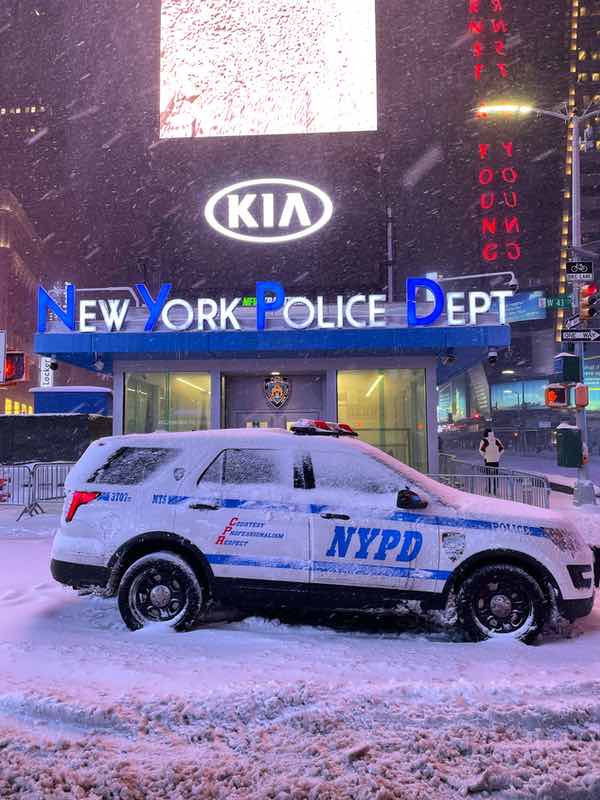
When you’re running a travel company, the excitement of offering unforgettable experiences in New York City can sometimes be met with unexpected challenges. From sudden weather changes to transportation strikes or even large-scale events that disrupt everyday city life, NYC can throw a curveball when you least expect it. Handling these situations is crucial for maintaining your travel company’s reputation and ensuring your clients have the best touristic experience possible.
As part of our NYC travel blog, this article provides practical strategies for effective crisis management tailored to NYC’s unique environment. Read on for travel management best practices to keep your business resilient in the Big Apple!
Understand the Unique Challenges of NYC
NYC is an exciting city that never sleeps with many business opportunities, but that also means it’s constantly changing. This means you’ll always have a new hurdle to overcome to avoid disrupting your travel business.
Some of these challenges include:
Security Concerns
Tourism companies in many cities, including NYC, rely heavily on Information Technology (IT) systems for bookings, communication, and logistics. While convenient, it also comes with many IT challenges, including system outages and cybersecurity threats.
To address these New York IT challenges, you need to fortify your systems with solid backups, offline procedures, and solid cybersecurity strategies. Regular crisis training, partnerships with local IT firms, and frequent disaster recovery drills are also crucial for maintaining a smooth operation during technical disruptions.
Weather Disruptions
NYC’s weather can be unpredictable. One minute, you’re basking in the sunshine; the next, you’re dashing for cover from a sudden downpour.
For a travel business, this means preparing for sudden changes and their impact on your operations. You can do this by creating a contingency plan for various weather scenarios and communicating with clients about potential weather-related changes.

Transportation Strikes and Disruptions
The city’s public transportation system is one of the largest in the world, but it’s not without its issues. Delays, strikes, and maintenance work can all disrupt your carefully planned itineraries.
You can stay ahead of these problems by developing relationships with multiple providers and having backup options ready. Anticipating challenges will help turn transportation hiccups into opportunities to showcase your expertise.
Large-Scale Events
New York City’s vibrant event calendar, while exciting, can pose challenges for travel operations. Major events like marathons and parades often cause traffic congestion and road closures.
To ensure smooth travel, maintain a city events calendar plan accordingly and develop alternate routes and activities for busy days. Alternatively, you can transform these potential disruptions into unique client experiences.
Watch this video to learn how to cross the street during the NYC marathon:
Understanding NYC’s challenges is critical to thriving in its dynamic travel industry. It’ll help you create a plan to address these issues and provide travelers with possible good alternatives.
Develop a Travel Crisis Management Plan
Having a solid travel crisis management plan is essential for handling any unexpected challenge. Here’s how to develop a tourism crisis management plan tailored to your NYC environment:
Conduct a Risk Assessment
Start by identifying potential risks specific to your operations in NYC. This could include everything from natural disasters like hurricanes to more mundane issues, such as traffic delays. Understanding the risks will help you prepare effectively.
Create an Effective Crisis Communication Plan
Communication is vital in developing a travel crisis management plan. Develop a plan that outlines how you’ll keep your clients informed. This includes having clear messaging ready for different scenarios and ensuring that your team has the skills to deliver this information calmly.
Have a List of Emergency Contacts
Make sure you have a list of emergency contacts, including local authorities, transportation services, and nearby hospitals. This list should be easily accessible to your team.
Craft a Backup Plan
Always have a backup plan with you. For every activity on your itinerary, consider what you’ll do if it gets disrupted. This might involve having alternative routes, indoor activities, or even postponing certain events.
Embrace Training and Drills
Regularly train your staff on how to handle emergencies. Conduct drills so they know what to do in different situations. This preparation ensures that when something goes wrong, your team can act quickly and efficiently.
A well-crafted travel risk management plan is your safeguard against the unexpected in NYC. This plan will help you anticipate challenges, prepare your team, and enhance your client’s trust.
Build Flexibility Into Your Operations
Flexibility is crucial when dealing with the unexpected. Here are some strategies to ensure your operations can adapt quickly:
Provide Flexible Itineraries
Build flexibility into your itineraries. For example, you can schedule outdoor activities with indoor alternatives in case of bad weather. Also, consider offering clients options so they can choose activities based on real-time conditions.
If your clients hit a really stormy or rainy day – here are some ideas for indoor activities in NYC:
Prioritize Real-Time Monitoring
Use technology to monitor real-time conditions in the city. Whether it’s checking weather updates, tracking transportation schedules, or staying informed about any sudden events, being aware allows you to make quick decisions.
Educate Your Clients
Educate your clients about the potential challenges they might face during their trip. Set expectations early so they understand that changes might happen and that your team is ready to handle them.
Build Strong Relationships
Build strong relationships with local vendors and service providers. This can give you more flexibility when you need to make last-minute changes to your travel plans. For instance, a good relationship with a local restaurant might allow you to secure a booking on short notice.
Embracing flexibility in your operations will ensure your travel company can adapt swiftly to any situation. This approach will minimize disruptions and enhance your client’s experience.
Conclusion
Navigating NYC’s dynamic travel industry requires a strategic and adaptable approach. By understanding the unique challenges posed by the city’s unpredictable nature and implementing a solid travel crisis management plan, travel agencies can survive and thrive in this exciting yet demanding environment. Remember, flexibility, preparedness, and a client-centric mindset are essential for turning potential disruptions into opportunities for exceptional experiences.









